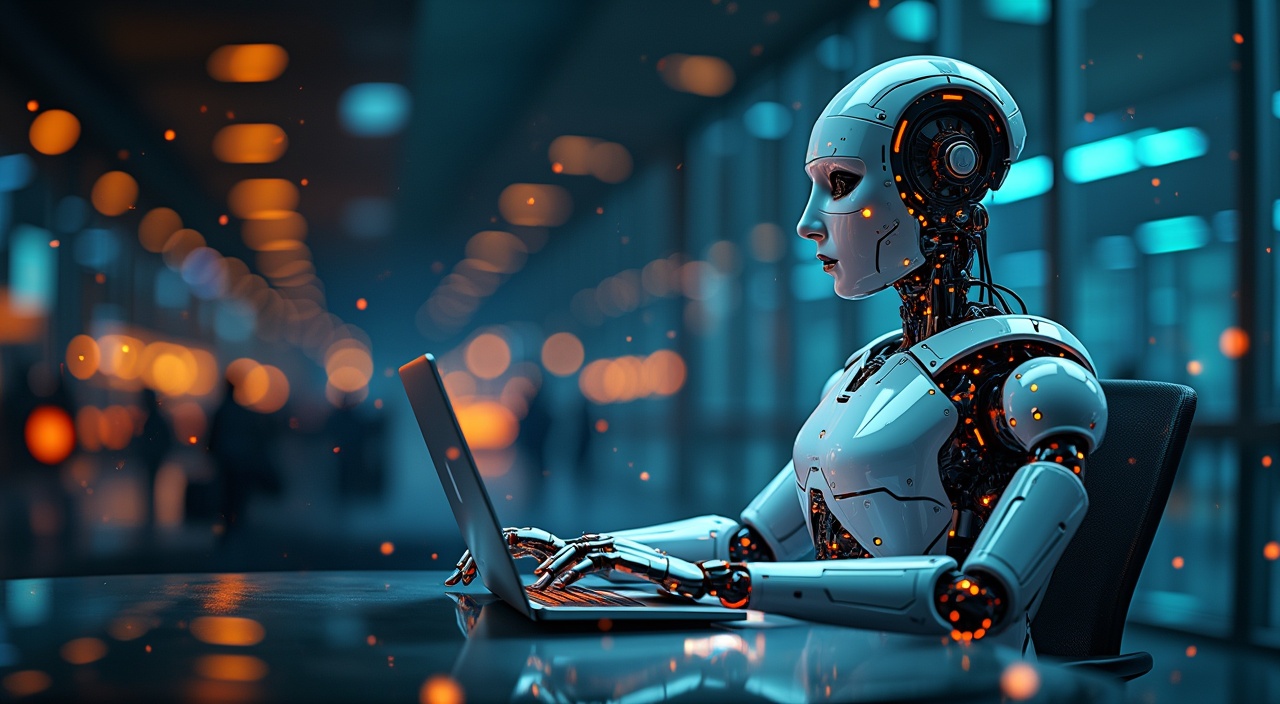Artificial intelligence is reshaping employment dynamics with unprecedented speed and impact. Current predictions indicate massive workforce transformations as AI technologies rapidly advance, compelling professionals across industries to reconsider their career trajectories and skill development strategies.
Key Insights
- Approximately 300 million full-time jobs globally could shift due to AI, representing 9.1% of the worldwide workforce
- Data entry, customer service, and administrative roles face the highest potential for AI automation
- Up to 375 million workers worldwide may transition to new occupations by 2030
- AI could generate 133 million innovative jobs while transforming 75 million existing roles
- Career resilience demands developing critical thinking, creative problem-solving, and technical expertise
The analysis reveals a profound technological shift. AI’s impact extends beyond job displacement, creating opportunities for workers willing to adapt and upskill. Professionals who proactively embrace technological changes will position themselves advantageously in an evolving job market.
Strategic skill development becomes crucial. Individuals must cultivate adaptable capabilities that complement AI technologies. This includes enhancing emotional intelligence, creative thinking, and specialized technical knowledge that machines cannot easily replicate.
Human expertise remains irreplaceable. While AI transforms work processes, human judgment, empathy, and complex reasoning continue to drive organizational success. Workers who integrate technological proficiency with uniquely human skills will thrive in this dynamic professional landscape.
The AI Job Disruption Tsunami
Current Impact Assessment
AI’s effects on employment have already started showing concrete numbers. In May 2023 alone, 3,900 US workers lost their jobs directly due to AI implementation. I expect this trend to accelerate rapidly as businesses adopt more AI solutions.
Future Projections
The employment landscape faces significant shifts in the coming years. Goldman Sachs reports that AI could replace approximately 300 million full-time jobs globally, representing 9.1% of the worldwide workforce. Looking further ahead, McKinsey predicts up to 800 million jobs might be affected by AI automation by 2030. This doesn’t necessarily mean all these positions will disappear – many will transform or evolve into new roles.
Here are the jobs that face the highest risk:
- Data entry and processing positions
- Customer service representatives
- Basic content creation roles
- Administrative support staff
- Entry-level analysis positions

Sectors Under AI’s Crosshairs
High-Risk Industries
Manufacturing jobs face direct competition from AI-powered robotics, while service sector positions shrink as chatbots handle customer inquiries. I’ve observed retail and food service workers being replaced by self-checkout kiosks and automated ordering systems.
White-Collar Disruption
Administrative roles aren’t immune to AI’s influence. Data analysis, document processing, and routine office tasks are shifting to AI systems. Recent business surveys indicate 77% of companies are actively incorporating or investigating AI solutions. Here are the key positions facing immediate AI impact:
- Financial analysts and accountants processing routine transactions
- Customer service representatives handling basic inquiries
- Assembly line workers in manufacturing
- Data entry specialists and administrative assistants
- Retail cashiers and food service order takers
These changes aren’t eliminating entire industries, but they’re reshaping traditional roles into positions that manage and oversee AI systems instead of performing tasks directly.
The Economic Earthquake
Job Market Upheaval
AI’s financial impact continues to reshape global economics, with PwC projecting a $15.7 trillion contribution to the economy by 2030. This massive shift brings significant workforce changes. McKinsey research indicates 375 million workers worldwide will need to switch occupations by 2030 – representing 14% of the global workforce.
Wage and Employment Trends
The impact on wages tells a concerning story. Labor statistics show up to a 70% decrease in wages since 1980 in sectors affected by automation. I’ve noticed a rapid acceleration in AI adoption across industries, with recent surveys indicating 23.5% of American businesses have already substituted human workers with AI systems. This transition affects various sectors:
- Manufacturing and assembly line operations face the highest risk of automation
- Customer service roles see increased chatbot replacements
- Data entry and processing positions experience significant AI integration
- Administrative tasks become streamlined through AI tools
- Financial analysis roles adapt to algorithmic decision-making
These changes don’t necessarily spell doom – they signal a transformation in how we work. While some jobs disappear, new roles emerge. The key lies in skill adaptation and continuous learning to stay valuable in an AI-enhanced workplace.
Ethical Crossroads and Human Adaptation
Ethical Challenges
AI’s rapid growth raises valid concerns about income gaps and social stability. While some professions face disruption, AI’s impact depends heavily on how we prepare and respond. The key lies in proactive skill development rather than reactive measures.
Adapting Through Skills
The transition requires significant workforce adaptation. Here are crucial areas where professionals should focus their development efforts:
- Critical thinking capabilities to analyze complex situations
- Creative problem-solving methods for unique challenges
- Adaptable communication skills across digital platforms
- Technical literacy combined with human judgment
The World Economic Forum reports that AI could create 133 million new jobs by 2025, while displacing 75 million existing roles. This shift demands quick action – studies suggest over 120 million workers need retraining within the next three years. Companies investing in employee development today are better positioned for tomorrow’s AI-integrated workplace.
Expert Perspectives on AI’s Job Market Revolution
AI’s impact on employment splits expert opinion. A recent Pew Research Center survey reveals that 50% of technology experts predict substantial job losses by 2025. Yet, these changes aren’t entirely negative. Market analysis suggests AI could create a net gain of 58 million jobs, even as it disrupts traditional roles.
Jobs at Risk and Growth Areas
I’ve identified several fields where AI’s influence is creating job shifts. Here are the key areas expected to change:
- Data entry and basic administrative tasks face automation
- Customer service roles shift to AI-assisted positions
- Manufacturing jobs transform into tech-maintenance roles
- New positions emerge in AI development and oversight
- Healthcare sees hybrid roles combining human care with AI diagnostics
While some positions will decrease, others adapt and transform. Traditional roles don’t simply disappear – they often evolve into new positions that combine human skills with AI capabilities. The key to success lies in skill adaptation and continuous learning. Workers who embrace AI tools as partners rather than competitors position themselves for success in this changing job landscape.
The shift isn’t about complete replacement but rather about transformation. I’ve found that most positions will integrate AI rather than be fully automated. This creates opportunities for those willing to learn new skills and adapt their expertise to include AI collaboration.
The Human Factor: Navigating AI’s Employment Landscape
Building Future-Ready Skills
AI won’t eliminate jobs – it’ll transform them. I believe adapting to this shift demands active skill development and smart career planning. Humans excel at creative thinking, emotional intelligence, and complex problem-solving – abilities that AI still struggles to match.
Here are key areas professionals should focus on:
- Critical thinking and decision-making skills that extend beyond data analysis
- Emotional intelligence and interpersonal communication
- Creative problem-solving and innovative thinking
- Technical literacy to work alongside AI systems
- Project management and strategic planning abilities
The path forward lies in collaboration between humans and AI, not competition. While machines handle repetitive tasks, humans can concentrate on work requiring judgment, creativity, and emotional understanding. Companies and governments must support this transition through retraining programs and policies that protect workers while embracing technological progress.

Sources:
Pew Research Center survey
Explodingtopics
Sogetilabs
Seo.ai
Innopharma
